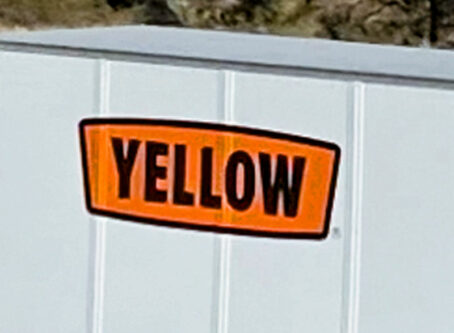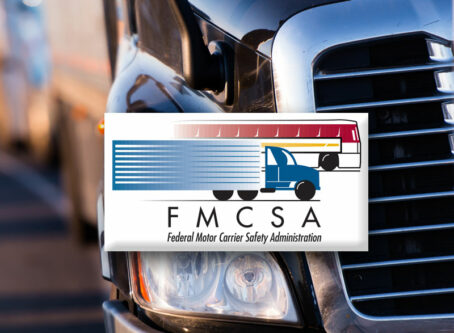FMCSA emergency declaration reporting requirement due Oct. 5
Motor carriers who are voluntarily operating under the FMCSA’s COVID-19 emergency declaration will be required to report the number of trips in which they used the exemption.
The emergency declaration, which provides regulatory relief for truckers providing direct assistance related to the pandemic, was first issued in March 2020, but September marks the first month for the reporting requirement.
When FMCSA extended the declaration at the end of August, it announced some changes, including a requirement that motor carriers must report their reliance on the declaration within five days after the end of each month. Motor carriers have until Oct. 5 to fulfill the requirement for September.
To report, motor carriers can access their portal account, log in with the company’s FMCSA portal credentials, and go to “Emergency Declaration Reporting” under the “Available FMCSA Systems” section on the page. As of Tuesday, Sept. 28, the reporting function was available through the portal account.
FMCSA is seeking basic information, including the number of trips using the declaration and which commodities were transported. The form’s options for the number of trips are 1-5, 6-10, 11-20, 21-50, and over 50. Motor carriers also are asked to select all of the commodities that they hauled under the exemption.
“The idea is to get some feeling on how those declarations are being used,” FMCSA Director of Enforcement and Compliance Joe DeLorenzo said during a Town Hall event last week at the Guilty By Association Truck Show in Joplin, Mo. “The problem right now is that we really don’t know. The reporting requirement is to get some feel of how it is being used and how much.”
Other changes
On Aug. 31, FMCSA announced that it was extending and modifying the emergency declaration that gives regulatory relief for truck drivers providing direct assistance related to the pandemic. Although some relief from the hours-of-service regulations was extended through November, the scope of the exemption was narrowed.
The most recent version of the emergency declaration provides exemption only from the Federal Motor Carrier Safety Regulations’ 395.3, which sets a maximum driving time for property-carrying vehicles. Previous declarations covered parts 390-399 of the FMCSR with some exceptions. Of note, the exemption no longer covers 395.8(a), 395.8(k) and 395.11 related to driver’s records of duty status, supporting documents, and retention of driver’s records of duty status and supporting documents, as well as subpart B of part 395 related to electronic logging devices.
FMCSA’s latest version of the declaration added fuel and supplies to assist individuals affected by the pandemic to the list of qualifying items.
The extension is limited to transportation of:
- Livestock and livestock feed.
- Medical supplies and equipment related to the testing, diagnosis and treatment of COVID-19.
- Vaccines, constituent products, and medical supplies and equipment including ancillary supplies/kits for the administration of vaccines, related to the prevention of COVID-19.
- Supplies and equipment necessary for community safety, sanitation, and prevention of community transmission of COVID-19 such as masks, gloves, hand sanitizer, soap and disinfectants.
- Food, paper products and other groceries for emergency restocking of distribution centers or stores.
- Gasoline, diesel, jet fuel, and ethyl alcohol.
- Supplies to assist individuals impacted by the consequences of the COVID-19 pandemic, including building materials for individuals displaced as a result of the emergency.
FMCSA said the new supplies provision, for example, includes loads intended for construction of temporary housing of individuals displaced as a result of the emergency or for temporary sheltering of overflow hospital patients as a result of the spike in COVID-19 cases.
“Regular shipments for routine stocking of hardware stores and building supply centers would not be covered,” FMCSA wrote.
The agency said direct assistance does not include routine commercial deliveries, including mixed loads with a nominal quantity of qualifying emergency relief added to obtain the benefits of this emergency declaration. LL









